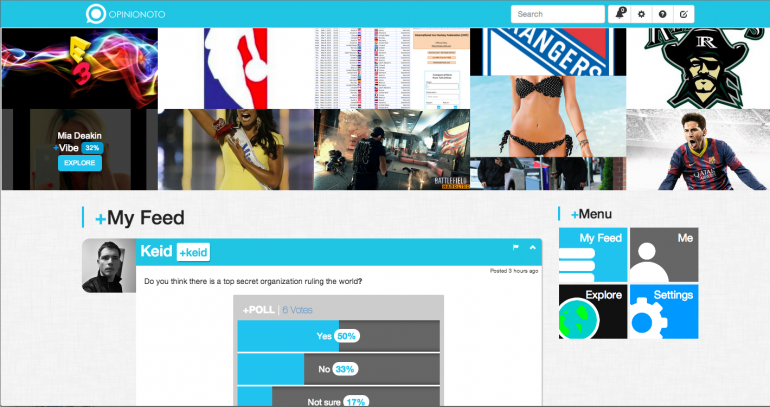Second year computer science student Shehmeer Ahmad said he simply wants to “level the playing field” with his new web platform for real world discussion and opinions, Opinionoto.
“You don’t have to have this huge following or be iconic to be heard, all you have to have is an opinion and you can have it seen,” said the 19-year-old York University student. He also runs his own marketing company geared towards small businesses, called TriDice Marketing.
Opinionoto formerly soft-launched to limited success, mainly because of a lack of users, so Ahmad and cofounder Arber Beqiraj pulled the plug and started building up an invite list. It now stands at about 2,300 people who want to join the new and improved site, and Ahmad said that number is growing by the hundreds every week.
He referenced Twitter as a motivation for starting the site, commenting how the popular social media site actually promotes social polarization: people of different opinions aren’t collaborating or communicating with each other (which makes sense given that its a “follower”-based type of social media. Yet there are those who desire more discourse).
Moreover, he said responses on Twitter are at an all-time low. The pair of cofounders structured the platform in a way that promotes “actual discussion as opposed to keeping the conversation one-sided,” and have included algorithms that perform semantic analysis, creating a consensus about how the world feels about a specific topic at any time.
The design of the site is extremely clean, and one can tell that the pair have a keen eye for a decent user experience. Other than that its essentially everything that Facebook can do, but more so for those who actually want to debate topics. Users can post updates or questions, can form voting-based polls, while followers can “bump” up posts that they like, or of course, reply.
Users can choose to disclose their full name, or remain anonymous. I asked Ahmad how much he considered making users disclose their full information, and it wasn’t something they wanted to do. “We want to allow people to feel free to express themselves,” he told BetaKit. “Google is sort of experimenting with having your self associated with your youtube account, for instance, and we felt that that kind of puts people in an uncomfortable spot.”
When asked what motivated the two cofounders to build a platform that encourages debate, especially given the Internet’s tendency to mutate into quite an ugly place in certain comment boards, Ahmad said he simply thinks the world will be better with more conversation.
“I understand the dissonant nature of opinion, and even that clash,” said Ahmad. “But I believe in the importance of empathy and the ability to see someone else’s perspective. To achieve something like world peace, although it’s a a cliché, would require all of us to understand others’ view points, so if we can help make that happen that would be great.”



